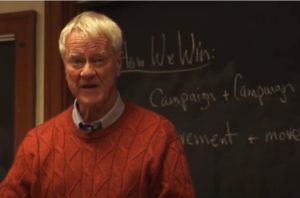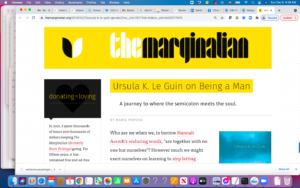Peoples’ Movements CAN and Do Unrig the Game
It’s easy to get discouraged when we look around and see all the problems. But it’s also crucial to see our progress and celebrate our victories. The massive outpouring following the murder of George Floyd is one recent example of a people’s movement that made change. His murderer, a white cop who would have been expected to get off, was convicted, and many communities have been grappling with the role of police.

I am 65 years old and have been an activist for 52 years. In my short time, I’ve seen people’s movements achieve many victories for human rights, for the planet, and for ending poverty. Yes, the pace is too slow. But yes, the wheels of positive change are turning. When I was a child, segregation was still the law in the American South and in openly racist apartheid regimes like South Africa and Rhodesia. If women worked, it was mostly as teachers, nurses, and domestic. Lesbians and gays were completely marginalized and ridiculed–and bisexual or trans people were invisible. People with disabilities were often warehoused in horrible institutions. Agriculture was so focused on overprocessed foods with the nutrition stripped out and chemicals put in. Most people had never even heard about the environment and concern around climate change was almost unknown–while factories spewed toxins into the air and water. The UN Sustainable Development Goals would not be written for decades. Nuclear power and fossil fuels were all that people thought about for energy, and no attempt was made to conserve or recycle.
WE, THE PEOPLE, CHANGED ALL THAT! And we can do it again and again. We may not live to see the change we want, but we CAN make a difference when we work together for change. If future generations have better conditions because of our efforts, our work is not for naught–just as the work of people in the 1980s, 1970s, 1960s, 1950s, and all the way back for centuries made things better for us.
Knowing that moving the business world is crucial to leverage change, I’ve focused much of my career as a writer, speaker, and consultant on showing that when business chooses to operate in ways that make a difference for such issues as hunger, poverty, racism/othering, democracy, war, and catastrophic climate change (to name a few), they can succeed financially as well. I’ve set up a website at https://GoingBeyondSustainability.com to provide resources for that transition.
On the activist side, I’ve been involved with many causes over the years, and have had a few victories, including starting the movement that saved a mountain threatened by a disgusting real estate development. Because we always had the mindset that we would win, we did, and it was quick–just 13 months. My current main cause is immigration justice–but all the issues are related and we have to seem them holistically.


